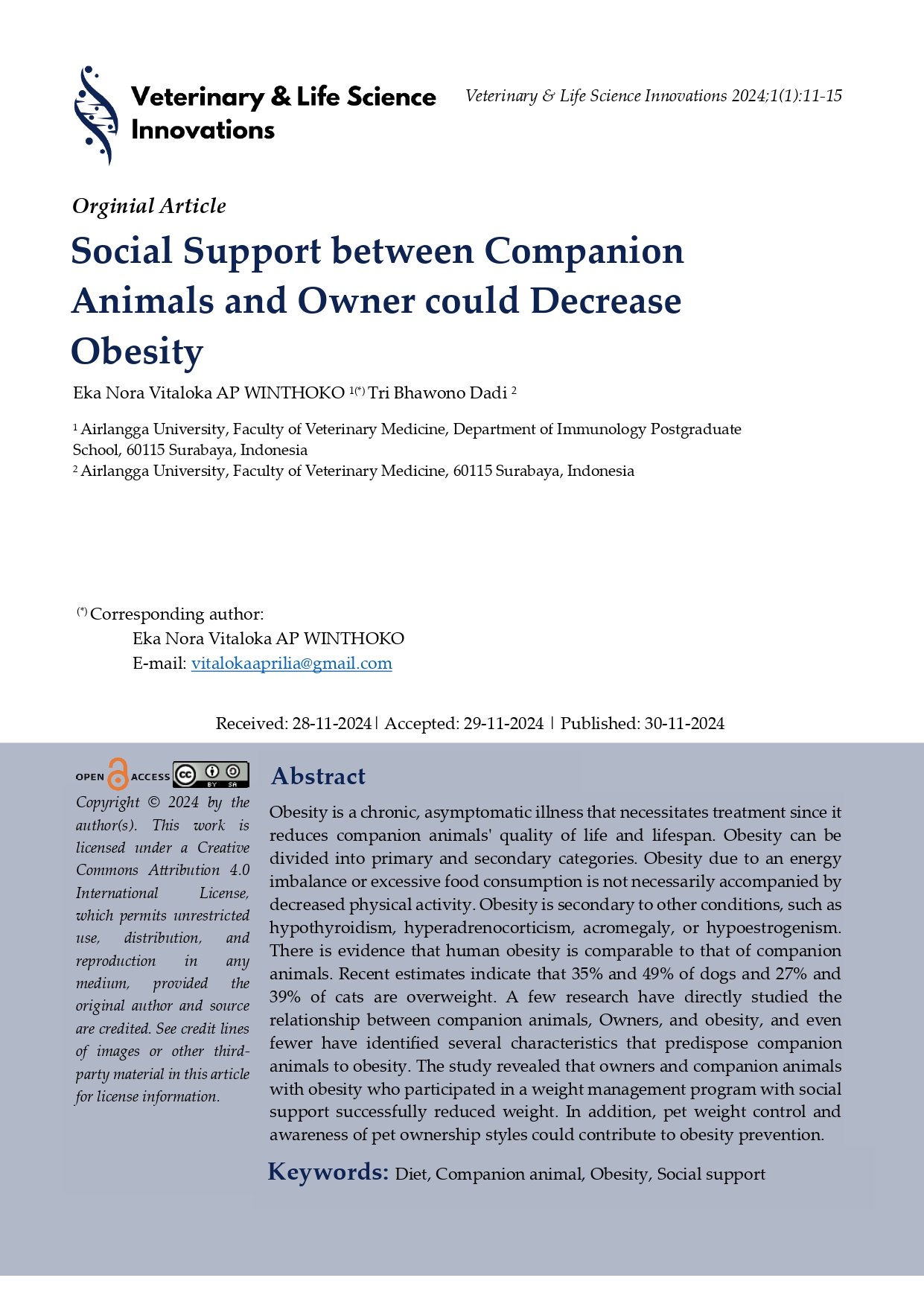Social Support between Companion Animals and Owner could Decrease Obesity
Keywords:
Diet, Companion animal, Obesity, Social supportAbstract
Obesity is a chronic, asymptomatic illness that necessitates treatment since it reduces companion animals' quality of life and lifespan. Obesity can be divided into primary and secondary categories. Obesity due to an energy imbalance or excessive food consumption is not necessarily accompanied by decreased physical activity. Obesity is secondary to other conditions, such as hypothyroidism, hyperadrenocorticism, acromegaly, or hypoestrogenism. There is evidence that human obesity is comparable to that of companion animals. Recent estimates indicate that 35% and 49% of dogs and 27% and 39% of cats are overweight. A few research have directly studied the relationship between companion animals, Owners, and obesity, and even fewer have identified several characteristics that predispose companion animals to obesity. The study revealed that owners and companion animals with obesity who participated in a weight management program with social support successfully reduced weight. In addition, pet weight control and awareness of pet ownership styles could contribute to obesity prevention.

Downloads
Published
Issue
Section
License
Copyright (c) 2024 Veterinary & Life Science Innovations

This work is licensed under a Creative Commons Attribution-NonCommercial-ShareAlike 4.0 International License.
Veterinary & Life Science Innovations provides open access to ensure that the information and findings in the articles are beneficial to all. All content of this journal article can be accessed and downloaded freely, at no cost, in accordance with the Creative Commons license applied.







